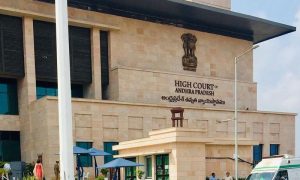 Facts of the Case: The petitioner is engaged in the management of educational institutions, educational consultancy, and also provides hostel accommodation services to students. For this purpose, the petitioner had taken residential dwellings on rent from various landlords and provided such accommodation to students. Although services by way of renting of residential dwellings for use as residence are exempt under Entry No. 12 of Notification No. 12/2017-Central Tax (Rate) dated 28.06.2017, the landlords charged GST on the rent, and the petitioner, accordingly, paid tax to them.
Facts of the Case: The petitioner is engaged in the management of educational institutions, educational consultancy, and also provides hostel accommodation services to students. For this purpose, the petitioner had taken residential dwellings on rent from various landlords and provided such accommodation to students. Although services by way of renting of residential dwellings for use as residence are exempt under Entry No. 12 of Notification No. 12/2017-Central Tax (Rate) dated 28.06.2017, the landlords charged GST on the rent, and the petitioner, accordingly, paid tax to them.
Subsequently, realizing that such services were exempt, the petitioner filed two refund applications under Section 54 of the CGST Act, 2017. The department initially issued deficiency memos seeking clarifications, but later, through memos, informed that the refund claims were time-barred, as they had been filed beyond the prescribed period of two years under Section 54. Aggrieved, the petitioner filed two writ petitions challenging the said memos, contending that the question of limitation cannot be decided through a deficiency memo and must be adjudicated by following the statutory procedure prescribed under Rule 92(3) of the CGST Rules, 2017.
Issue: Whether the respondent authorities were justified in rejecting refund applications as time-barred through deficiency memos, without following the procedure of show-cause notice, reply, and speaking order under Rule 92(3) of the CGST Rules, 2017; and whether limitation under Section 54 applies to refund claims of tax paid under mistake of law on exempt supplies.
Held that: The Court observed that services by way of renting residential dwellings for use as residence are exempt under Entry 12 of Notification No. 12/2017. Therefore, the petitioner was never liable to pay GST, and any tax collected was without authority of law, violating Article 265 of the Constitution (no tax shall be levied or collected except by authority of law).
Relying on the Gujarat High Court decision in Comsol Energy Pvt. Ltd. v. State of Gujarat, the Court held that Section 54 limitation applies only to refund of lawful tax, not to refund of amounts collected without authority of law. Such cases fall within Section 17(1)(c) of the Limitation Act, 1963, which covers refunds arising from a mistake of law.
The Court also referred to Binani Cement Ltd. v. Union of India, wherein it was held that refund claims of unconstitutional levies are not barred by limitation under tax statutes. The deficiency memos rejecting refund applications as time-barred were set aside. The respondents were directed to consider and decide the petitioner’s refund claims on merits, without going into limitation, in accordance with law. The refund adjudication process was directed to be completed within four weeks from receipt of the order. The writ petitions were allowed
Case Name: M/s. Nspira Management Services Private Limited Versus Assistant/ Deputy Commissioner of Central Tax, Nellore, Union of India. dated 26.09.2025
To read the complete judgement 2025 Taxo.online 2465


